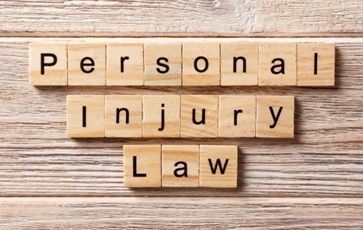How Negligent Hiring Can Lead to Nursing Home Liability
Nursing homes need to ensure they hire the right people. Negligent hiring can lead to employees who can cause harm to nursing home residents. If that happens, the negligent hiring would make the nursing home liable for the damages. Below are examples of such situations.
Failure to Verify Personal References
Employers usually ask for references to confirm the claims of potential employees. Referees can include past employers, professional associates, and religious leaders. Say a nurse aide applies for a job in a nursing home and lists their immediate former employer as a reference. The nursing home should check the nurse aide's claim with their former employer.
Now say the nursing home doesn't verify the nurse aide's claim but goes ahead to employ them. The nursing home might be liable for injuries that the nurse aide might cause to a resident. The nursing home's liability makes even more sense if verification would have made the nurse ineligible for the job.
Failure to Verify Educational Papers
Nursing homes should also verify educational certificates before hiring employees. The educational certificates confirm potential employees' claims and skills. After all, an employee's educational level may determine their duties at the nursing home.
For example, a nursing home social worker who presents a master's degree claims a higher educational level than one who presents an associate degree. Complications can arise if the employer doesn't verify the degree but gives the social worker dues commensurate with their claimed education. In such a case, the nursing home would be liable for their employee's actions.
Failure to Screen for Drugs
Businesses that provide essential and sensitive services usually screen their employees for drug use. Even the government regulates drug use for certain employees. Drug screening is critical since drugs impair judgment, interfere with stability, and reduce reaction times. All these effects increase the risk of injuries in nursing homes.
For example, a nurse or social worker under the influence of drugs might:
- Mix up a resident's medication
- Slip and fall when helping a resident to get out of bed
- Fail to notice when a resident needs emergency care
Say a nursing home fails to screen an employee and hires a social worker with a history of drug abuse. The employee might then be under the influence of drugs and mishandle a resident. The resident can use negligent hiring to hold the nursing home liable for their injuries.
Failure to Do a Criminal Background Check
An employee's criminal history may determine the type of duties they can or cannot do. For example, drug crimes, assault and battery, and theft are employee crimes that can affect nursing home residents. Nursing homes should carry background checks on their potential employees to avoid such risks.
For example, a social worker with a history of financial fraud should not assist a nursing home resident with financial matters. A nursing home that hires such an employee without performing a background check is usually negligent. The negligence can lead to liability claims if the employee commits a crime that the background check could have prevented.
Failure to Check Driving Records
Many nursing homes also need drivers to drive their residents and deliver essential items, among other driving duties. The nursing homes should confirm the driving records and license status of all drivers they hire. For example, drivers with histories of intoxicated driving are risky. A nursing home that hires such a driver can be liable for the accidents the driver might cause.
Contact the Law Offices of Janice Maloney if your loved one has suffered an injury in a nursing home. We will review the circumstances of the injury, determine the liable parties, and help your loved one recover their damages.




